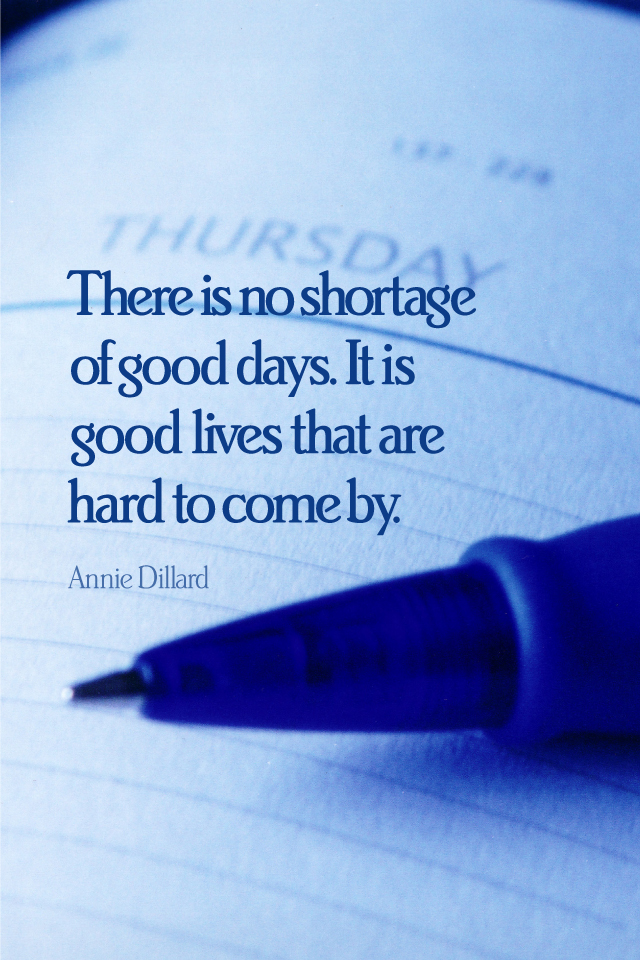My very first experience with philosophy was finding and reading a copy of Ayn Rand’s Atlas Shrugged on my father’s bookcase, but that quickly led to me Aristotle, who has stuck with me over the years. Before discovering Aristotle, my primary concerns were related to life’s day-to-day pleasures. I asked myself how I could be happy, but it was a smaller picture. It was more the question of how could I have a good day and not how could I have a good life.
Although Aristotle’s writings may be a little stiff when compared with the writing we’re used to in the 21st century, I think it’s still able to speak to us in the ways we think about the world. What is the good life? Aristotle begins addressing this as we would – he looks around him and sees what friends, family members, and fellow citizens have to say. I’ve done the same thing with students I’ve taught. One of the most common answers is always… can you guess it?
Money.
And yet, survey after survey has shown that as America becomes wealthier, our self-reported happiness has actually decreased.
Once our basic needs are met – we have enough to buy food, have basic shelter – money has very little affect on how happy we are. The nature of desire itself is tricky. There will always be someone who has more than us. Once we acquire something, we get used to it and suddenly start desiring something else. Modern advertising bombards us with messages that we need products or services that will make us better and ultimately happier, but as it turns out, none of this is really what matters at all. We’re actually not very good at predicting what will make us happy. So what matters?
For Aristotle, the important concept is that of eudadimonia. This greek word often gets translated into English as ‘happiness’ but it’s so much more robust than what we normally mean when we say happy. Happiness is fleeting. I can be happy in the morning and sad by night. Eudaimonia is more a state of being – a way of being. It’s hard to achieve but also hard to lose. Many have suggested that ‘joy’ would be a better translation.
So how do we achieve this? True happiness must be intrinsic and self-sufficient, and it must be based on what is unique about us as a species, which is our ability to reason. Eudaimonia is a state of excellence achieved through reason and is the source of true happiness.
This seems like a simple insight, but we get so caught up in activities of our day-to-day lives and our focus on paying bills that I think it’s very easy to overlook. If we pursue happiness directly, it eludes us. It is really our own excellence that we need to pursue, and only once achieved does happiness occur.
For a large part of my life, I always had some obstacle that I thought was preventing my happiness or goal that I needed to achieve to reach that happiness. “If only I could do this… I will be happy” was the way I thought about things. But that’s not it at all. The hardest thing to realize is that there is nothing external that impacts our happiness. Nothing we can achieve externally, nothing we can buy, nothing that can happen to us has anything to do with our happiness.
Happiness has everything to do with our internal excellence.
Once I realized that, the entire focus of my life shifted.
That’s a tough first step, though. I think at some instinctual level we tend to focus on what’s going on around us. Every television program, every bill board, every store tells us that there’s something we lack – something we need to bring happiness. But we have to rise above all that noise and really look into our own selves. That’s not something our culture actively encourages or celebrates, and the first time to really try to do that – it can be scary. It’s strange to say it, but when we’re constantly plugged in to technology and connected with others, we don’t have very much time to spend with ourselves and our own thoughts. When we do that, some big – and often scary – questions rise to the surface:
Who am I?
Why I am here?
What really matters?
These are the basic questions that launched and still sit at the root of all philosophic inquiry.
This where the journey to happiness starts. Take some time – right now – to spend alone with your thoughts. Let your thoughts come, even if they’re a little scary and you don’t have all the answers. Then try to focus on one question:
What would mean – what would it look like – for me to achieve excellence?

“Many have suggested that ‘joy’ would be a better translation.” – May I ask who? I like that, but the translation I always hear and use is ‘human flourishing’.
“Happiness has everything to do with our internal excellence.” – Are you still providing exegesis on Aristotle here?- If so, I’m not familiar with such an interpretation, it sounds rather Stoic.